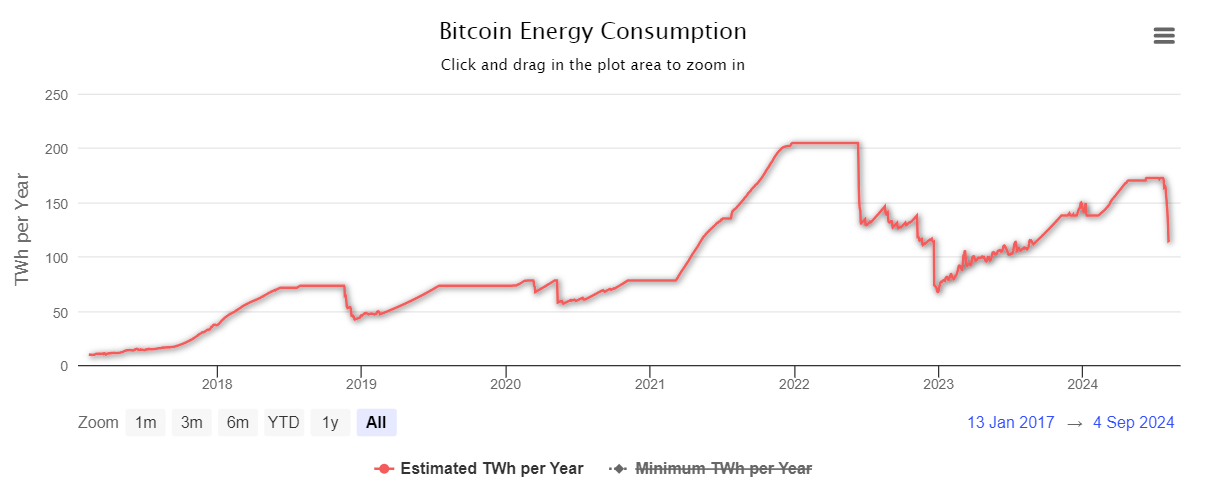Bitcoin’s energy consumption has decreased by 24% since the end of July 2024. This decline is a significant development for Bitcoin, which has long been criticized for its negative environmental impact. According to Digiconomist’s data, mining activities consumed 152.52 TWh of energy at the end of July, which dropped to 115.21 TWh in August. This can be seen as an effort to reduce the environmental impact of Bitcoin mining.
What Are the Reasons for the Decline?
The decrease in energy consumption may be due to Bitcoin miners adopting more sustainable methods. Mining projects focusing on renewable energy sources like hydroelectric power are particularly noteworthy.
 Crypto Traders Are Rushing to This App – Here’s Why You Should Too
Crypto Traders Are Rushing to This App – Here’s Why You Should Too
The Grand Ethiopian Renaissance Dam, built in Ethiopia, could make the country a new center for Bitcoin mining. With this major project, miners in Ethiopia have access to lower-cost and environmentally friendly energy.
Is Bitcoin Really Harmful to the Environment?
The energy consumption and environmental impact of Bitcoin mining are at the center of debates. Environmentalists argue that mining activities harm the environment due to high energy consumption and carbon emissions, while others dispute these claims.
An audit report by KPMG states that Bitcoin mining uses only 0.55% of global energy demand and causes less greenhouse gas emissions than the carbon emissions from the electricity produced. These data strengthen the position of those who argue that Bitcoin is not directly harmful to the environment.
Is a More Environmentally Friendly Approach Possible for Bitcoin’s Future?
To reduce Bitcoin’s environmental impact, organizations like the Bitcoin Council promote sustainable mining. While alternatives that consume less energy, such as Ethereum‘s Proof of Stake (PoS) consensus mechanism, are being considered, it remains uncertain whether Bitcoin will take steps in this direction. However, initiatives such as the development of energy-efficient mining equipment demonstrate commitments to environmental protection.
This decrease in Bitcoin’s energy consumption could open a new chapter in the cryptocurrency’s sustainability. Bitcoin, struggling with environmental criticisms, could change this perception with steps towards sustainability. However, the more pressing issue than environmental impacts is the cost of Bitcoin mining. If the current cost level of $83,600 continues, most miners may face bankruptcy.


 Türkçe
Türkçe Español
Español









